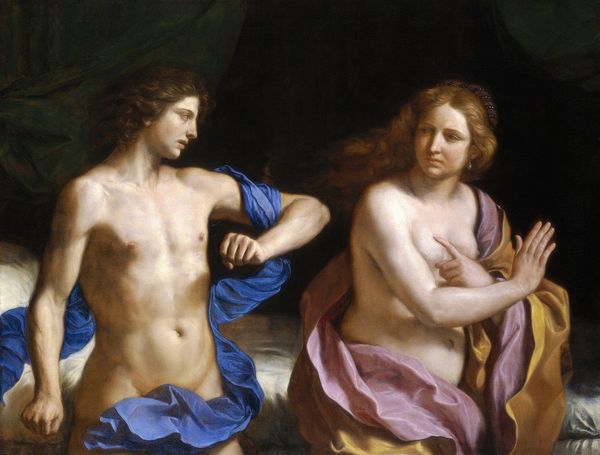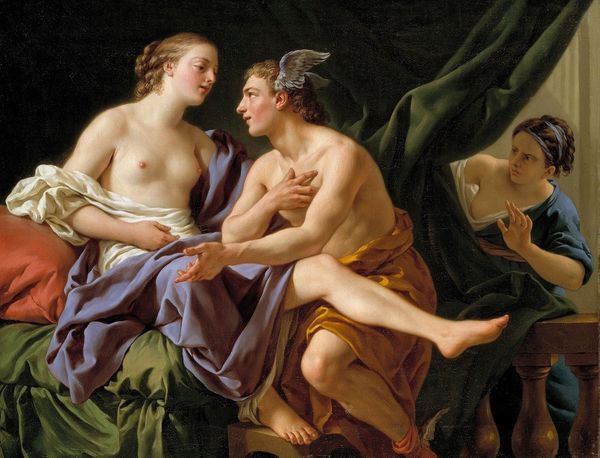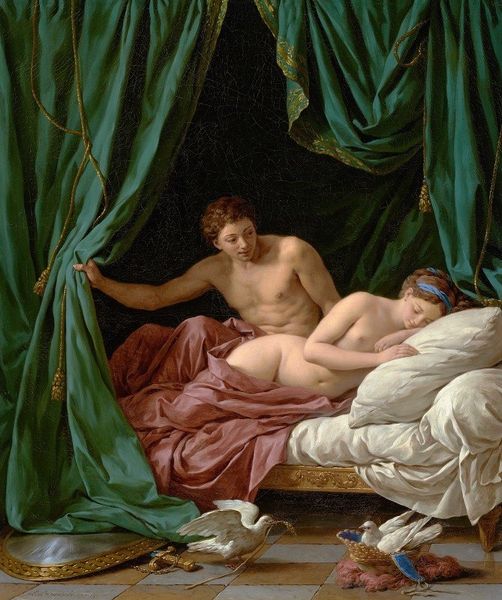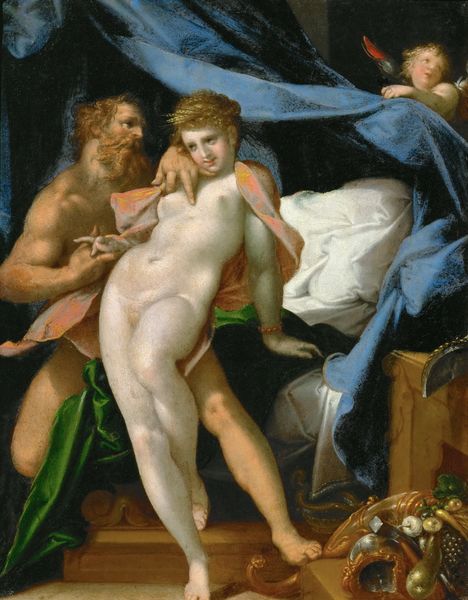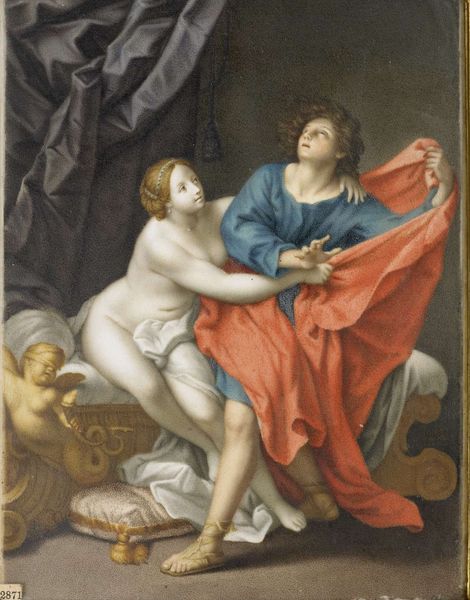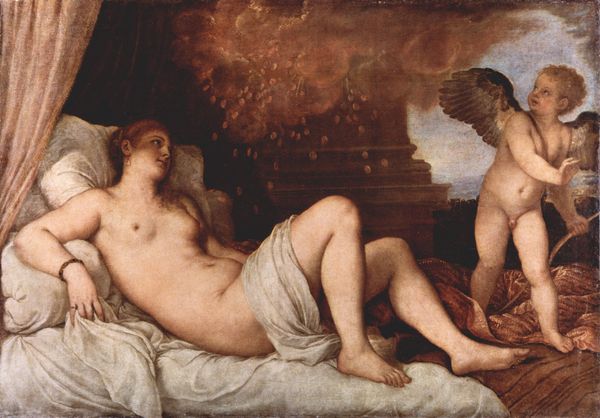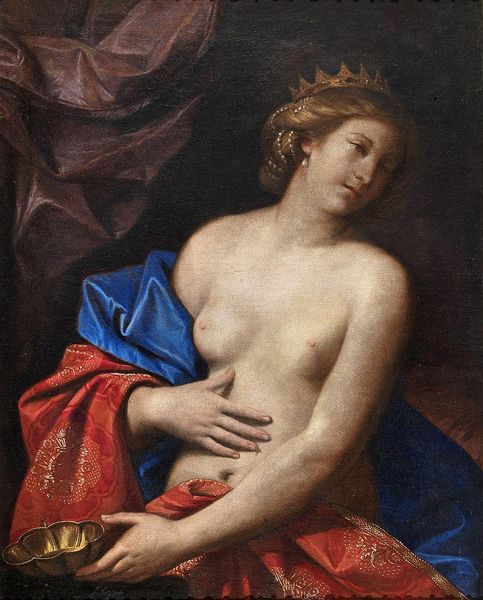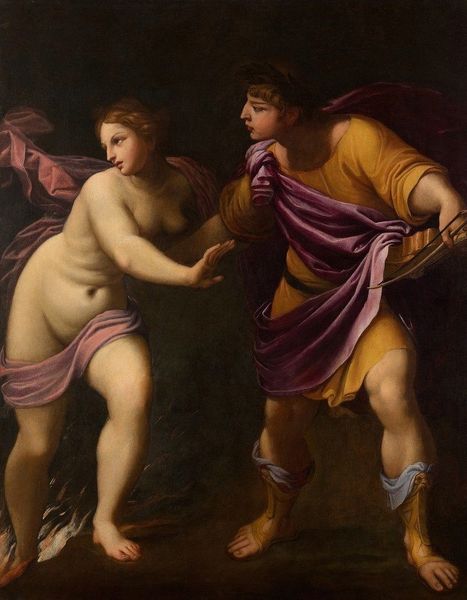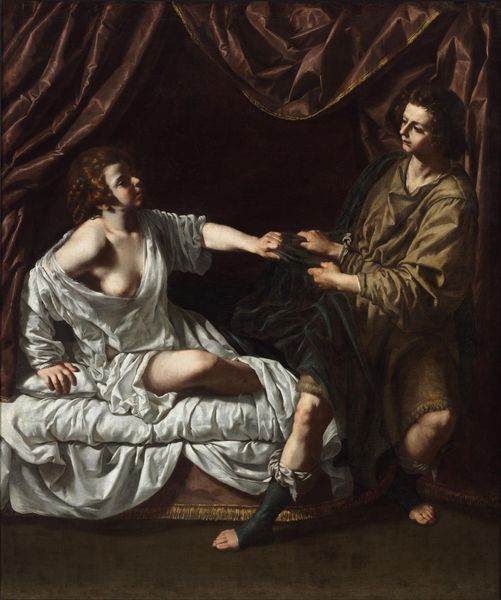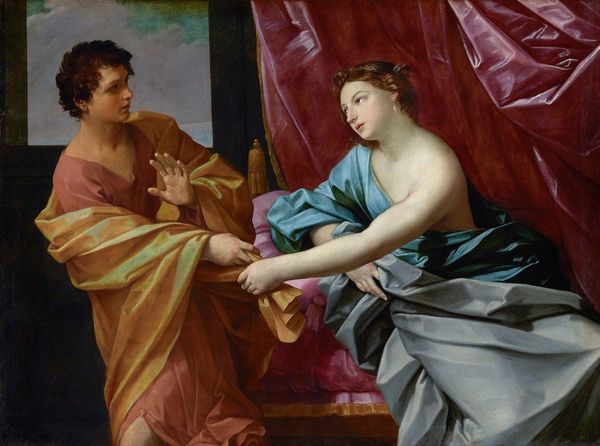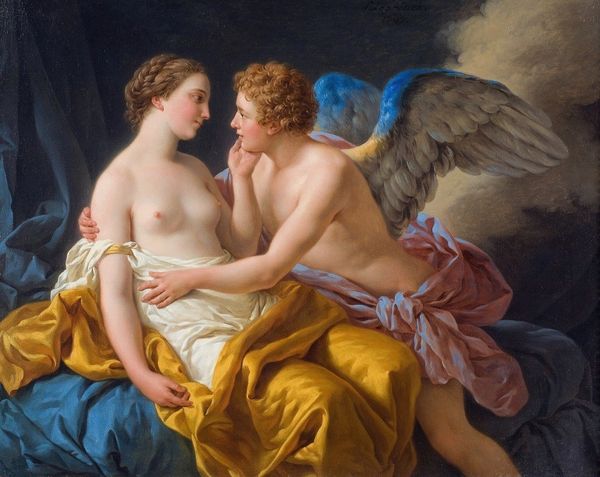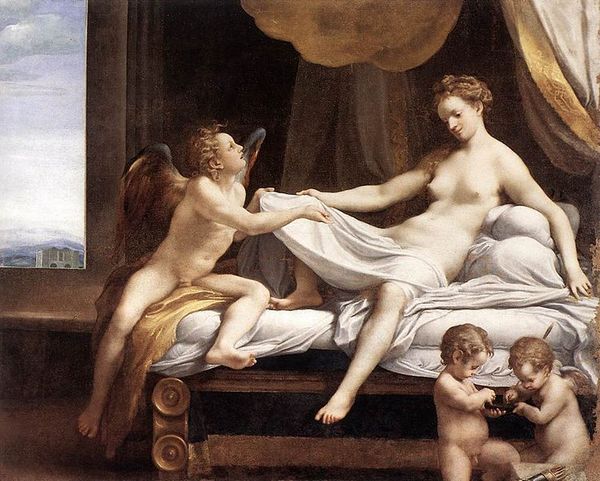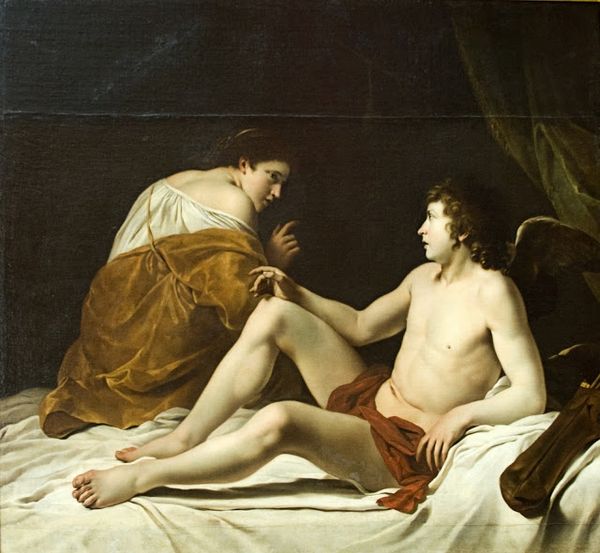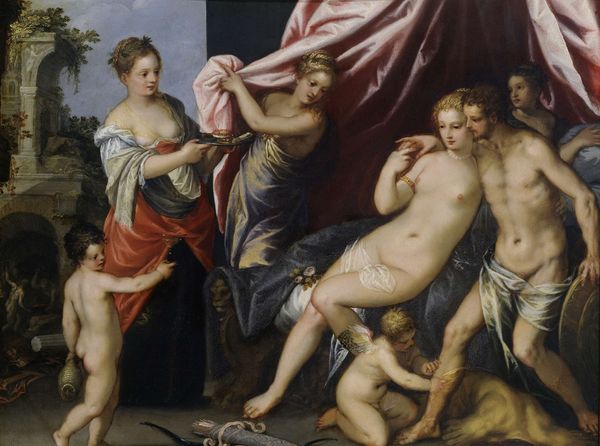
painting, oil-paint
#
allegory
#
narrative-art
#
baroque
#
painting
#
oil-paint
#
figuration
#
chiaroscuro
#
genre-painting
#
history-painting
#
italian-renaissance
#
nude
#
realism
Copyright: Public Domain: Artvee
Guercino painted Joseph and Potiphar’s Wife, capturing a moment of intense conflict. Here, the symbols of virtue and temptation clash. Consider Joseph's averted gaze and outstretched hand: universally understood signs of resistance and moral purity. We see echoes of these gestures across time, reappearing in depictions of saints resisting temptation, such as Saint Anthony, the hermit in the desert. The iconography of this scene reminds us of how the concept of temptation has been portrayed throughout art history, from Eve offering the apple in the Garden of Eden to Salome holding John the Baptist's head. The veil, or in this case the bedsheet, is also a recurrent symbol. In antiquity, it represented the boundary between the sacred and the profane. Here, the bedsheet becomes a symbol of deceit and the breaking of social taboos, but also of the shame and guilt felt by Potiphar's wife, powerfully engaging us on a deep, subconscious level. This painting reveals how visual symbols carry emotional and psychological weight across time and space, resurfacing, evolving, and taking on new meanings in different historical contexts.
Comments
No comments
Be the first to comment and join the conversation on the ultimate creative platform.
